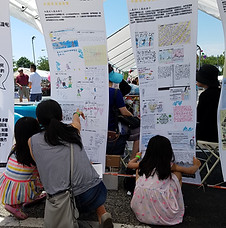The Wonder of Awareness
Everyone’s interpersonal relationships grow within a web of complexity, and this growth can generally be divided into three stages: “Unaware,” “Realizing After the Fact,” and “Proactive Awareness.”

“Unaware” refers to a state where, during conflicts, it’s often assumed the fault lies with the other person or that they triggered one’s negative emotions. Commonly, when words or actions provoke a negative response from others, one doesn’t understand why and tends to think, “The problem lies with them.” At this stage, people are unaware that their own communication style might be problematic or inappropriate. They believe their words are correct, while the other person is wrong and unwilling to admit it. This approach focuses only on surface-level problem-solving. If stuck in this phase, interpersonal relationships remain in the initial stage of “Unaware” with little growth. In family relationships, this can easily lead to stagnation or even breakdowns.
“Realizing After the Fact” refers to recognizing communication issues only after a negative response has already occurred. At the moment, one might not understand why or think they did anything wrong. However, upon reflection, they realize their words may have been inappropriate, explaining the other person’s reaction. This stage shows a willingness to learn from the experience and improve communication in the future. While some growth happens here, it remains in the second phase of “Realizing After the Fact.” In family relationships, recurring issues can erode trust and cause regression or stagnation in the relationship.
“Proactive Awareness” is the ability to recognize one’s inner state during communication and express oneself clearly without triggering negative emotions in others. It also involves remaining calm when faced with negativity, understanding the other person’s feelings and desires. This is the ideal communication model we advocate: in both family and interpersonal relationships, “Know yourself and understand others for win-win communication.”
Achieving these levels of growth requires learning communication skills and consistent practice. Our philosophy promotes “Proactive Awareness” to prevent conflicts and improve harmful communication patterns. Building relationships on harmony and understanding fosters enjoyable and meaningful interactions. Prevention is better than last-minute fixes. When all family members learn the art of “Proactive Awareness,” they can share more happy, relaxed, and fulfilling moments together. The more such moments, the warmer and happier the family will be.


